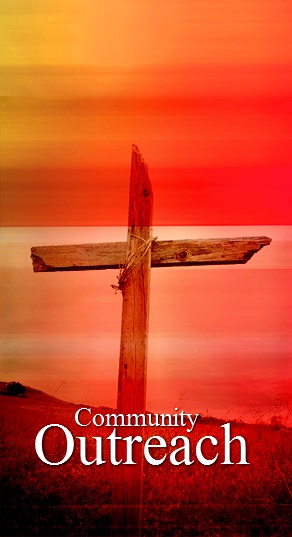When one thinks about Christmas, chances are a million different things pop into your head. Everything from Mary and Joseph, shepherds, angels, wise men, and a baby in a manger. You also have Santa Claus, Christmas trees, Christmas lights, Christmas TV programs, before and after Christmas sales, and of course Chik-Fil-A Peppermint milkshakes (if you have never had one, let’s just say that they are further proof that God is good and gives good gifts to His people.) When you think of Christmas, chances are you don’t think of darkness. You think of light! You think of joy! You think of togetherness! However, Luke 2:22-35 gives us a different idea of what we traditionally think Christmas to be. Luke 2:22-35 comes almost immediately after the shepherds leave and the Angels return to Heaven. Anywhere between 8 and 40 days after the birth of Christ, Mary and Joseph go up to the temple in Jerusalem to present Jesus to the Lord (in accordance with the Law of Moses). While they are their, we read about a man named Simeon who has been eagerly awaiting the coming of the Messiah. Through the Holy Spirit, Simeon was informed that he would not die until he had seen the Lord’s Christ. Being guided by the Spirit, Simeon runs into Mary, Joseph, and baby Jesus at the temple and says these words: “Lord, now you are letting your servant depart in peace, according to your word; for my eyes have seen your salvation that you have prepared in the presence of all peoples, a light for revelation to the Gentiles, and for glory to your people Israel.” Many will stop at the end of verse 32 and think, “Yes! That is the Christmas message that I am familiar with! Right there is the joy of Christmas!” And in a sense, they are correct. Indeed a great light has come down and God’s glory has been revealed through the birth of Christ. Churches over the centuries have used these words from Simeon, known as the Nunc dimittis, in their worship services, but Simeon doesn’t stop speaking in verse 32. Notice what Simeon says to Mary in verses 33 and 34. “Behold, this child is appointed for the fall and rising of many in Israel, and for a sign that is opposed (and a sword will pierce through your own soul also), so that thoughts from many hearts may be revealed.” It kind of makes sense that churches wouldn’t want to add that part to their liturgies. There are 2 things that I want us to focus on briefly in these verses and they both involve some form of conflict. When Christ was born, a great light came into the world. The reason that light was needed was because there was such great darkness. When we think of Christmas, we think of light, yet when Christ came, there was only darkness. So, how is the darkness defeated? Through the death and resurrection of Jesus Christ. All too often when we think about Christmas, we forget about what Christ came down to accomplish. As Christ was born on Christmas morning, He was born in the shadow of the cross. Notice that Simeon tells Mary that her child was appointed to be a sign that was opposed. In saying these words, he is reminding Mary of the suffering servant that Isaiah speaks of in Isaiah 52-53. The baby that she held in her hands would one day be abandoned, beaten, and killed for the falling and rise of many. We cannot think about Christmas without thinking of what Christ came to accomplish. The second conflict that we read of involves Mary and extends to us today. Simeon tells Mary that “a sword will pierce your own soul also.” What Simeon means by this is that one day, Mary will feel the cost of what her Son came to accomplish. She would be hurt deeply as she saw her child beaten, blasphemed, rejected, and crucified. No parent ever wants to outlive their child. Mary would feel the hurt pierce through her soul, like a sword piercing through her heart. When Simeon told Mary this, he was speaking to us as well. Every Christian will in some way, feel the sword pierce their soul. It doesn’t take an experienced Christian to realize that this is true. Christianity was never promised to be easy. To follow Christ is to carry His cross and die in His place. Tim Keller said, “If you love Jesus and have Him in your life, a sword will pass through your heart as well. There will be inner conflict, sometimes confusion, sometimes great pain. You will get things wrong. You may fight with Him. And you may fight with yourself.” Why is this? Because our spirit is at war with our flesh. The life that we now live for the Son of God is different (or should be different) than the life that we were living before we came to faith. In Romans 6-8, Paul talks about the inner warfare between the Christian’s old self and the Christian’s new self. In Romans 7:15, Paul himself says, “For I do not understand my own actions. For I do not do what I want, but I do the very thing I hate.” Here Paul is talking about the sword that has pierced his soul! He is talking about the conflict between his faith and his flesh. If a man like Paul felt the pain of the sword, what makes us think that we won’t? But thanks be to God that the sword that pierces our soul is not a mortal wound. The conflict of our soul is a reminder of the “sword” that came down on Christ. The pain wasn’t lessened, no relief was given, the agony was fully endured. Jesus faced the ultimate sword on our behalf. We can face the conflict with full confidence that Jesus has already won. There will be days when Christianity will be hard, days where we are carrying our cross uphill, with the sun scorching down on us, but we can endure knowing that this struggle is only temporary. We know the reward that is waiting for us. John Newton once wrote to a friend to encourage him in his walk with Christ by saying, “to view Him by faith, as living, dying, reigning, interceding, and governing for us, will furnish us with such views, prospects, motives, and encouragements, as will enable us to endure any cross, to overcome all opposition, to withstand temptation, and to run in the way of His commandments with an enlarged heart.” So, why am I writing about Christmas the day after Christmas? Because from the very beginning, the birth of Christ was never meant to be celebrated for just one day. The story of Christmas extends well beyond the manger and the shepherds. The story of Christmas reminds us that a great light has come to put an end to the darkness. By following Him, a sword will pierce our soul, but we can be encouraged because of the nails that pierced His hands. There will be conflict and confusion but Christ has already secured the victory, and like Newton said, we can endure any cross because of what He has already accomplished.
-Brady


